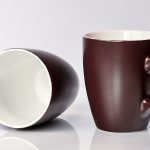A Trademark Specimen Proves Use in Commerce
A trademark application specimen is not as scientific as it sounds.
Essentially, a “specimen” is a required component of an application for registration of a trademark with the US Patent and Trademark Office (USPTO).
In order to enjoy registered trademark protection in the US, the trademark must be used in interstate commerce. This means that the trademark is actually being used to identify the specific quality and source of a product or service being sold across state lines.
The specimen illustrates to the USPTO how this is being done.
Detroit Michigan Trademark Attorney: Specimen Examples
Depending on what type of good or service you offer, the required specimen will vary considerably.
If you are selling clothing from a retail store, an example would be the “hang-tag” attached to an item of apparel with the trademark or logo on it (as opposed to a t-shirt with a logo print ON IT).
If you are selling used cars, the billboard advertisement featuring the trademark or logo that you place alongside the local highway would be another example.
If you are selling handmade goods via Amazon marketplace or Etsy, or your own website, a screenshot of the online “storefront” prominently featuring both your logo or trademark and the website feature enabling customers to actually place a purchase (PayPal payment button, or “Place in Shopping Cart” button, etc.) would be an appropriate example.
If you are selling services, marketing materials or website screenshots showing a direct link between your “service mark” and your marketed services would qualify.
As well as many others. There are likely as many possible examples of acceptable specimens as there are examples of different goods or services sold.
Detroit Michigan Trademark Attorney: Specimens Are Not Required for Applications based on Foreign Registrations or under the Madrid Protocol
If your application is based on a product or service’s use in US interstate commerce, or your intent to use it in US interstate commerce, you must include a specimen with your USPTO Trademark Registration Application.
If your application is based upon a prior registration in a foreign country or under The Madrid Protocol (an international system for registration a trademark in a number of different, participating countries simultaneously), a specimen is not required.
Detroit Michigan Trademark Attorney: A Specimen Can Be Refused
Specimens are refused by the USPTO when they do not include the trademark, do not show the trademark in use with the specific good or service, do not show that you specifically are actually using the trademark in commerce, and when the specimen is not appropriate for your particular good or service (i.e., a website storefront that fails to display a shopping cart feature or other means of purchasing the product or service).
If a specimen is refused by the USPTO, your trademark application will encounter what is called an “office action,” which will require a response to prevent the application from being denied.
Detroit Michigan Trademark Attorney: Specimens – The Bottom Line
The bottom line with regard to trademark registration specimens is that your application is far more likely to succeed with the assistance of a knowledgeable attorney who will guide you through the selection of the specimen for use in the application, as well as the proper drafting of the application itself.
Should your application receive a refusal or office action, you will certainly require the good legal assistance at that point.
Noble Path Trademark Law is a boutique US law practice located in Metro Detroit and assisting craft brewers, vintners, distillers, and others in all industries with trademark registration, trademark renewal, trademark monitoring, and Office Action refusal response matters.
We offer virtual consultations, premium customer service, and the expertise you need to maximize your odds of trademark registration success.






One response to “What Is a Trademark Specimen?”
[…] need a lawyer to properly advise as to what sort of specimen to attach to the application as well as to help advise as to the ownership of the mark (you […]